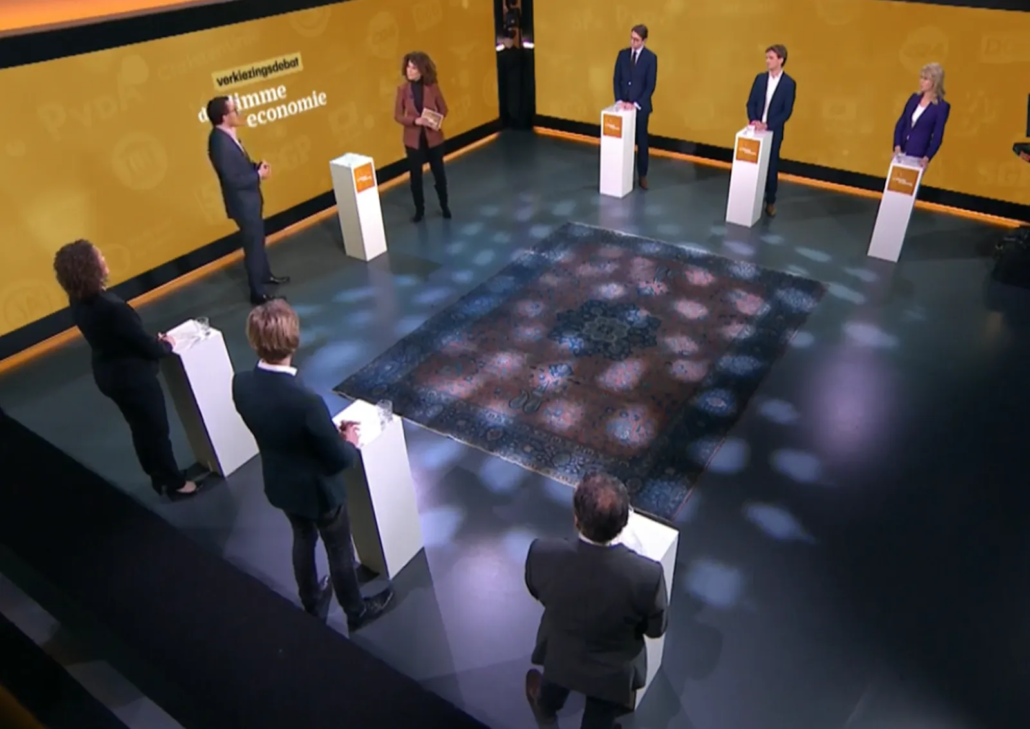December 20, 2023
Dutch political parties see the importance of investing in startups and scaleups

A fund for startups and scaleups with good ideas, increasing diversity in the world of technology, tax incentives for venture capital, the accreditation of coding institutes, and making alternative income constructions like equity and shares more appealing. The outcomes of the tech election debate are promising.
Tech is increasingly becoming more important for our economy and society. New players are arising in all sectors, and they represent a higher value than the companies that have long dominated these sectors. Are we doing enough for these entrepreneurs, Constantijn van Oranje wonders. As an ambassador of the Dutch startup ecosystem, he was a special guest during the debate.
Candidates MPs Mona Keijzer (CDA – Christian Democratic Appeal), Matthijs van Neerbos (PvdA – Labour Party), Steven van Weyenberg (D66 – Democrats 66), Tom van der Lee (Groenlinks- GreenLeft), Renske Leijten (SP – Socialist Party) and Dennis Wiersma (VVD – People’s Party for Freedom and Democracy) debated the development of tech champions in the Netherlands, the level of government efforts needed for a stronger tech ecosystem and the importance of attracting talent from abroad. Although there were clear disagreements during the debate, all parties agreed on one thing: startups and scale-ups play an important role in the transition to a smart economy and the government must do more to help them get funding and talent
‘The Netherlands should use tax incentives to encourage venture capital’ , this stand had two clear advocates: D66 and VVD. Dennis Wiersma from the VVD supports exempting startup investments in box 3. ‘ There must be a possibility that investors can reclaim part of the tax in the event of a failed startup’ , according to Van Weyenberg (D66). ‘ England has a comparable scheme that works well ’. Everything is negotiable for the CDA, including the English scheme, but as Mona Keijzer indicates, England does have a different tax system than we have. Additionally, VVD and D66 advocate for employee participation, making employees co-owners of the company, by changing tax policies to make equity more attractive. Mona Keijzer (CDA) stated her party already tabled a motion to that effect. ‘We have to look at how we can make it easier to pay out in stock options’. Tom van der Lee believes that Dutch pension funds should invest more in the Netherlands. In the current situation, 1.300 billion of the total of 1.500 billion is invested abroad.
Mona Keijzer, State Secretary for Economic Affairs and Climate Policy
In a world dominated by tech, it is important that education aligns with that world, states Constantijn van Oranje. ‘We are at risk of having a massive shortage of talent in technology because our education is still focused on jobs that will disappear in the future’.
TechGrounds was named as an example of education training IT professionals, with a focus on women and cultural diversity. Due to the current financing method of education, coding schools such as TechGround are not eligible for accreditation, meaning their students are not eligible for student grants.
Remarkably, all candidate MPs agreed this must change. ‘Too much local talent remains unused’, says Matthijs van Neerbos (PvdA). ‘We and several other parties have asked for this already’, the VVD responded.
Constantijn van Oranje, Special Envoy at Techleap
VVD, much like D66, supports recruiting talent from abroad when there is a skill gap in the Netherlands. According to VVD, the talent pool in the Netherlands is not large enough to fill all vacancies in the country. Organising talent missions abroad to scout for talent was one of the topics discussed.
Steven van Weyenberg from D66 stressed that improving diversity in the Netherlands needs to be a priority. He suggests the government’s startup investment fund apply a diversity plan. Only 1 in every 100 euros goes to businesses founded by women. He believes the government should intervene in this market failure. ‘As it stands, female entrepreneurs are often rejected by investors because they supposedly have insufficient experience. In that area, we are lagging behind in Europe’.
‘In the final round, the candidate MPs were asked which firm promises, besides those already mentioned in the debate, they will make in the run-up to the elections’. The candidate MPs’ firm promises in a row:
Constantijn van Oranje reflects on what was a good debate, ‘It is great that this took place. As stated, technology is increasingly rooted in our society. That means that from a political standpoint, you should have an opinion on all those factors and technology changes the perspectives. Especially because of the opportunities that exist. We need to draw up a different policy for that. None of the political parties has technology, startups, or scaleups high on their agenda. But tech is present in every sector. That is why it is important we discuss this. This impacts education, taxation, and foreign policy. We must come up with new paradigms about how we will deal with these developments.’
Watch the 23-minute compilation of the election debate:

 Richard Straver on how connections are vital to international expansion
Richard Straver on how connections are vital to international expansion